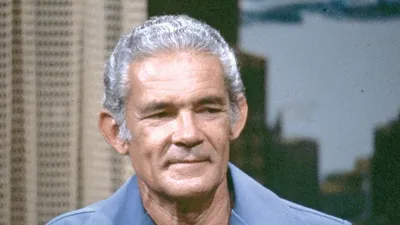The Arrival of the Scottish People in Jamaica: A Lasting Legacy
Jamaica’s rich cultural heritage is shaped by the many groups who have settled on the island over the centuries. While much attention is given to African, Indian, and Chinese influences, the Scottish presence in Jamaica is often overlooked, despite its significant impact. Scots played a key role in Jamaica’s history, from the colonial era to modern times, leaving behind a legacy that is still evident today in Jamaican surnames, architecture, and even the island’s dialect.
The Arrival of the Scots in Jamaica
Scottish migration to Jamaica dates back to the 17th century when Britain began expanding its influence in the Caribbean. Following Oliver Cromwell’s conquest of Jamaica from Spain in 1655, many Scots were sent to the island—some as soldiers, others as indentured laborers, and unfortunately, many as convicts exiled from Scotland.
By the 18th century, Scottish merchants and plantation owners had established themselves as a powerful economic force in Jamaica. Many of them were involved in the lucrative sugar trade, while others became overseers or administrators on the island’s plantations. Wealthy Scottish families played a crucial role in the development of Jamaica’s economy, though their involvement in the transatlantic slave trade remains a dark chapter in history.
The Role of the Scots in Jamaican Society
As time passed, Scots integrated into Jamaican society, intermarrying with other ethnic groups and contributing to the island’s diverse cultural mix. Many Scottish names, such as McGregor, McKenzie, Campbell, and Douglas, remain common among Jamaicans today.
The Scots also played a significant role in education and governance. Scottish missionaries, such as the Presbyterians, were instrumental in setting up schools and churches across the island. These institutions helped shape Jamaica’s educational system and influenced the development of its modern infrastructure.
The Legacy of the Scottish Community in Jamaica
Today, the influence of Scotland can still be seen across Jamaica. The town of Aberdeen in St. Elizabeth and other Scottish-named places serve as reminders of this historical connection. Additionally, Scottish-Jamaican descendants continue to shape the island’s cultural, political, and business landscapes.
Notable Figures in the Scottish-Jamaican Community
- Sir Alexander Bustamante – Jamaica’s first Prime Minister and National Hero, Bustamante was of Scottish descent. He played a crucial role in Jamaica’s fight for independence and workers’ rights.
- Norman Manley (Pictured above) – Another National Hero, Norman Manley, was a key figure in Jamaica’s political history and the founder of the People’s National Party (PNP). His Scottish ancestry highlights the deep-rooted ties between Scotland and Jamraica.
- James Robertson – A prominent Scottish-Jamaican businessman and plantation owner who played a major role in the island’s sugar industry during colonial times.
- William Knibbs – A Scottish Baptist missionary who worked tirelessly for the abolition of slavery in Jamaica. His advocacy helped lead to the emancipation of enslaved people on the island.
The Scottish presence in Jamaica is an often-overlooked but deeply ingrained part of the island’s history. From politics to business, education, and even place names, the Scottish influence is still visible today. While the past includes complex and painful histories, the contributions of Scots and their descendants have played an undeniable role in shaping modern Jamaica.


